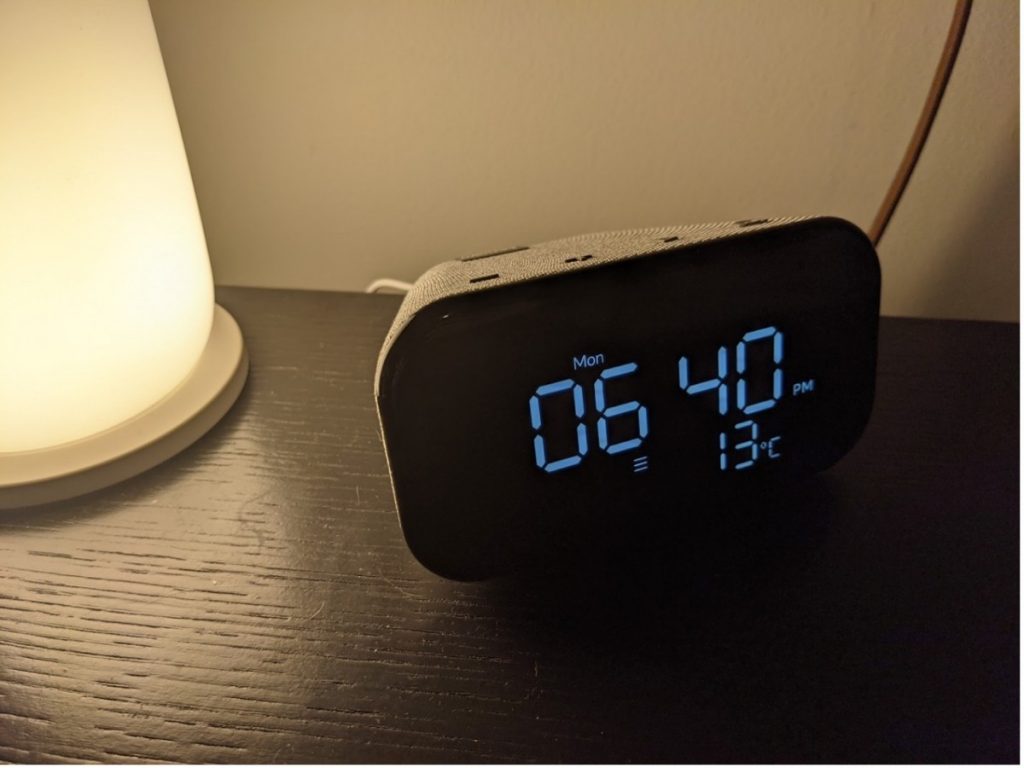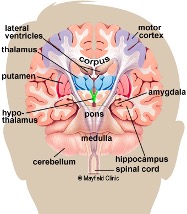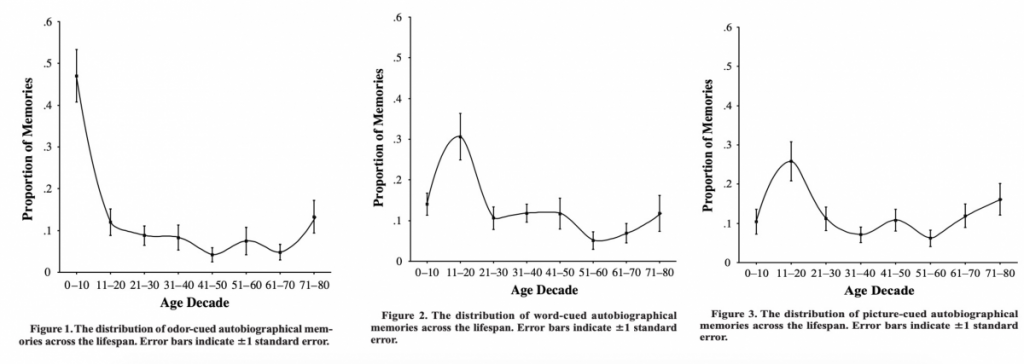When we are asked to think of a specific taste and smell, like aroma and salty, it’s very easy for us to recall what exactly it is as you are actually smelling or tasting it. Is it indicating a strong association between olfaction and memory? Basically, there are two distinct cognitive-perceptual processes associated with odor memory. The first one is to remember whether you have smelled an odor before, which is like knowing a particular sound signifies your alarm clock.

The second type is the memory triggered by odor. This type of memory is less investigated because of its weak connection to human health. The attention is initiated from eponymous literary anecdote where Marcel Proust suddenly transported to a long-forgotten moment in his childhood by eating a biscuit. It is now known as “Proust phenomenon” that odors can triggers the recollection of a meaningful personal story. I usually store some snacks I have in childhood and perfumes. When I want to eat one, I can always recall my childhood, like I exchanged those candies with my friends. I draw the pleasure from them.

Recently, a new study published in the journal Nature Communications shows that our brains integrate smell with information about space and time to form episodic memories. The findings may lead to better Alzheimer’s “sniff tests.” Scientists hypothesized that smell could trigger memory. They found olfactory processing system is close to the memory hub in the brain. Since amygdala and hippocampus also sits close to each other, which means that there is an inevitable connection between sensory processing system and episodic memory storage (responsible for specific past memory), you may have the ability to remember the smell of a lover’s perfume (the what) when you reminisce about your first kiss (the when and where). Smell is actually related to space and time when you are processing long term memory. Another research shows that spatiotemporal information is integrated in a brain region known as the anterior olfactory nucleus (AON), which is implicated in Alzheimer’s disease. Multiple experiments have done by scientists and they were surprised to discover a previously unknown neural pathway between the hippocampus and the AON. This circuits in the brain govern the episodic memory for smell, and now we are able to create a “sniff test” to detect the early onset of Alzheimer’s disease.

Another importance of this odor-evoked memory is that it can evoke more episodic memory (a long-term memory that involves the recollection of specific events, situations, and experiences) than memories triggered by other cues. The experiment by Willander J. and Larsson M took a total of 93 healthy volunteers as sample, ranging in age from 65 to 80 years. They were given three stimuli: odor, word, and picture. The goal for this experiment is to examine how those cues can trigger old people’s memory in a different time period. As every control groups and experimental groups had settled, participants would write down a short description of the event and to rate its experiential attributes. The number of evoked memories was investigated for each subject as a function of cue type. The three figures below show the result produced by three different sensory cues.

Figure 1 show the distribution of odor-cued autobiographical memory, figure 2 shows the word-cued memory and figure 3 shows the picture-cued memory. The present results indicate that olfactory-evoked autobiographical memories are older than memories associated with verbal and visual information. Specifically, most memories evoked by odors were located to the first decade of life (<10 years), whereas memories associated with verbal and visual cues peaked in early adulthood. Overall, this study demonstrated that olfactory-evoked memory representations are older, thought of less often, and associated with stronger feelings of being brought back in time than are memories triggered by verbal and visual information.
Reference:
- Herz, Rachel S. “The Role of Odor-Evoked Memory in Psychological and Physiological Health.” Brain Sciences, MDPI, 19 July 2016, www.ncbi.nlm.nih.gov/pmc/articles/PMC5039451/.
- Willander J., Larsson M. Smell your way back to childhood: Autobiographical odor memory. Psychon. Bull. Rev. 2006;13:240–244. doi: 10.3758/BF03193837.
- University of Toronto. “Scientists uncover new connection between smell and memory: Findings offer opportunities for improved smell tests in Alzheimer’s disease diagnosis.” ScienceDaily. ScienceDaily, 23 July 2018. www.sciencedaily.com/releases/2018/07/180723155726.htm.